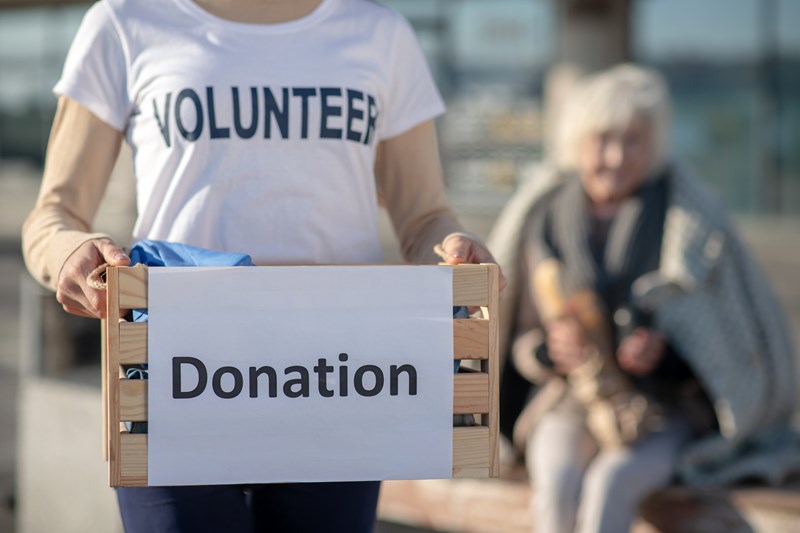Qualifications
- LLB, University of Canterbury 2019
- Admitted to the Bar in New Zealand 2019
Community Activity
- Trustee of the Bay of Plenty Youth Development Trust
- Secretary/Treasurer of the South Auckland Piping & Dancing Association
- Drum Corporal City of Tauranga Pipe Band
Contact
- DDI: +64 7 262 0439
- M: +64 27 867 8215
- E: angus.hendry@hobec.co.nz
Angus Hendry is an Associate in our property and commercial team.
Angus was born and raised in Tauranga. He began practicing law in Palmerston North in 2019 before joining Holland Beckett in 2022.
Angus has a wide range of experience in property and commercial transactions, as well as trusts and estate planning. He frequently advises charitable trusts and incorporated societies and is a trustee of the Bay of Plenty Youth Development Trust.
Angus has a strong connection to his Scottish roots. He is a lifelong Highland dancer, winning the New Zealand championships in 2019 and 2021. He is a drum corporal in the City of Tauranga Pipe Band.
Angus Hendry's Expertise
Angus Hendry's News & Resources

Congratulations to our new Associates
We are delighted to announce the promotion of four lawyers to Associate in our Tauranga team.
These promotions reflect the expertise, dedication and performance of these lawyers, and we look forward to seeing their continued impact and leadership in the years ahead.
Angus Hendry – Property and Commercial
Angus has a wide range of experience in property and commercial transactions, as well as trusts, charities, incorporated societies and estate planning.
Angus is a trustee of the Bay of Plenty Youth Development Trust and drum corporal in the City of Tauranga Pipe Band.
Angus joined Holland Beckett in 2022, after starting his legal career in Palmerston North.
Emily Merrill – Property and Commercial
Emily has experience in a wide range of property and commercial matters including subdivisions, townhouse developments, sale and purchase of residential, commercial and rural properties, refinancing arrangements and commercial leasing.
Emily also has specialist expertise in buying and selling of kiwifruit orchards and forestry assets as well as renewable energy, advising both landowners and developers on large scale solar projects throughout New Zealand.
Emily began her legal career at Holland Beckett as a summer clerk in 2016, before joining the firm proper in 2018 upon completion of her studies.
Rebecca Irvine – Property and Commercial
Rebecca is a highly regarded property and commercial lawyer. She advises on a broad range of matters, including developments and subdivisions, sale and purchase of residential and commercial property, sale and purchase of businesses, commercial contracts and leasing.
Rebecca is particularly experienced in local government transactions and assists local and regional authorities with leasing, Public Works Act matters, commercial contracts, delegations, privacy and general property and commercial advice.
Rebecca has a strong affinity for community-focused work, regularly advising charitable trusts and incorporated societies. She also contributes her time as a committee member of Bay of Plenty Symphonia Incorporated.
Rebecca began her legal career in litigation at a top-tier Wellington firm, equipping her with a sharp analytical edge. She joined Holland Beckett in 2018, later gaining valuable in-house experience at Tauranga City Council before returning to Holland Beckett in January this year.
Waiata Groot - Family
Waiata is in Holland Beckett’s family law team, the largest family law team in the Bay of Plenty. She specialises across a broad range of family law matters including: separation and division of relationship property (including complex Family Trust and Company structures); asset protection and Contracting Out Agreements; parenting and guardianship disputes; family violence (including urgent and non-urgent applications for protection orders): Family Court proceedings; estate claims under the Family Protection Act; applications for personal welfare and/or property orders relating to loss of capacity; and dissolution of marriage.
Waiata is committed to supporting clients through the legal process (often involving high-stress or sensitive family dynamics) to find the best solutions for clients, children and their wider families.
Waiata began her legal career at Simpson Grierson in Auckland in 2016. She then moved to Tauranga where she joined Cooney Lees Morgan for 3 years, before joining Holland Beckett in early 2024.
We are proud to be a firm that is committed to nurturing talent and providing opportunties for professional growth, ensuring that our team enjoy fullfilling legal careers from our beautiful Bay of Plenty offices.

Re-register it, before you re-gret it – why incorporated societies must act now
The Incorporated Societies Act 2022 represents a significant overhaul of the legal framework governing incorporated societies in New Zealand. The new Act introduces fresh governance standards, clearer responsibilities, and a modern framework designed to protect your society and its members.
With the re-registration deadline approaching, it\'s crucial for societies to understand the new requirements and take proactive steps to ensure compliance.
Failure to act now means there is a very real risk that your society will cease to exist come April 2026.
1. A new constitution
As a minimum requirement, most societies will need to adopt a new constitution in order to re-register. Societies are now required to have a constitution that complies with the new Act. This includes specifying the society’s purpose, membership criteria, dispute resolution processes, and procedures for general meetings and decision-making.
2. Re-registration
The new Act comes with a critical deadline: all existing incorporated societies must re-register by 5 April 2026.
Failure to do so will mean your society will cease to exist and there will be serious consequences, including:
The inability to deal with your society’s assets.
The inability for your society to operate.
Your members will lose the protection from personal liability offered by the 1908 Act, exposing them to potentially serious personal risk.
Jeopardizing existing arrangements and contracts with third parties, and risking your society’s reputation.
Re-registration isn’t just a formality - it’s a fresh start
Think of re-registration as hitting the reset button, while ensuring that your organization remains legally recognised and capable of continuing its work:
Stay in business: Re-registering guarantees your society’s ongoing ability to hold assets, enter contracts, and deliver on its purpose.
Embrace modern governance: The new law encourages transparent, accountable leadership. It’s an opportunity to review your rules, define officer duties more clearly, and adopt best practices.
Protect your officers: Officers will have new duties and liabilities - being prepared now can prevent future headaches.
Opportunities for growth: This is a perfect time to reassess your organisation’s goals and structure - perhaps an alternative structure, like a charitable trust, suits your organisation better.
How to re-register - and why it’s easier than you think
The government has simplified the process. A straightforward online form requires your society’s details - such as your new registration number, address, officer list, and updated constitution. It’s designed to be fee-free and accessible.
However, this isn’t just about ticking boxes. Your society’s name, purpose, or rules must meet specific requirements, and any non-compliance could cause delays or rejection. Starting the process early means fewer surprises and plenty of time to make necessary adjustments.
3. Other key steps your society should take now
Review your membership: The minimum number of members has been reduced from 15 to 10. Societies must maintain at least 10 members at all times, and each new member must consent in writing to join.
Assess committee and officer eligibility: Every society must have a committee of at least three officers. Officers must consent in writing and must not be disqualified (e.g. undischarged bankrupts or individuals convicted of serious offences). The Act codifies officer duties, including acting in good faith, exercising powers for proper purposes, and avoiding activities that could seriously harm creditors.
Prepare for financial reporting changes: Societies must prepare annual financial statements that comply with generally accepted accounting practices (GAAP). Larger societies must have their financial statements audited. A society is considered small and can continue its current reporting practices if it meets certain criteria, such as spending less than $50,000 in each of the two preceding financial years.
Implement dispute resolution procedures: Develop and document clear procedures for resolving disputes among members. The Act has minimum dispute resolution requirements which must be documented in the constitution and be consistent with the rules of natural justice.
Don’t leave your society’s future to chance - take action today!
The message is clear: act now before the April 2026 deadline. Re-registration is your guarantee that your society continues to serve its community and fulfil its mission.
How Holland Beckett can assist
Navigating the complexities of the Incorporated Societies Act 2022 can be challenging. Our legal services are here to support your society through the re-registration process and beyond. We offer:
Constitution review and drafting: Ensuring your constitution complies with the new Act and reflects your society\'s needs.
Officer and committee guidance: Assisting in assessing eligibility and understanding duties under the new Act.
Financial reporting advice: Providing guidance on meeting new financial reporting and auditing requirements.
Dispute resolution strategy: Helping develop and implement effective dispute resolution procedures.
Contact us today to ensure your society remains compliant and continues to operate smoothly under the new legal framework.

Buying Your First Home – A Guide
Purchasing your first home is an exciting experience but can also be a daunting one. There are a lot of things you need to know when you’re looking to make that first step. Below is a guide for first home buyers looking to enter the property market.
It is often tempting to put an offer in on a property as soon as you have walked into the first open home but there are a few things you should look at before signing the Agreement for Sale and Purchase.
Budget
The first thing to consider is your budget. The Bank will generally require you to have a 20% deposit which is often challenging for first home buyers, however there are options available to help which include your personal savings, your Kiwisaver (provided you have been a contributing member for at least three years and are eligible for a first home withdrawal) and gifting, loans and guarantees from family. It is important to be realistic about the amount you can afford while also taking into consideration how much the vendor is expecting to get for the property.
Type of Property
The second thing to consider is what type of property you are buying. In New Zealand there are four main types of property, these are:
Freehold also known as Fee Simple;
Cross Lease;
Unit Title; and
Leasehold.
Therefore, before you put your offer in or during your due diligence, it is a good idea to review the Record of Title to the property to ascertain what restrictions or interests you should be aware of. For example, while a property may be freehold, it could be subject to easements and covenants, among other interests, that may impose obligations on you as the property owner or restrict any plans you may have for the property.
Conditional or Unconditional?
The third thing to consider is the type of offer. There are two options when making an offer on a property, which are a conditional offer or an unconditional offer. An unconditional offer is one where there are no conditions attached to the offer, and you carry out your due diligence prior to making the offer. A bid at auction is an unconditional offer and you will be advised of all the due diligence you need to complete before the auction day. A conditional offer is one where you can specify conditions that must be satisfied before you declare the Agreement for Sale and Purchase unconditional and all conditions must have a timeframe attached.
What kinds of conditions should you include in your offer?
Not many first home buyers can put in a cash unconditional offer, and we generally wouldn’t recommend it as this may be one of the biggest investments and you will want to ensure you complete your due diligence on the property to be satisfied with all aspects of the property.
We can prepare your offer to the vendor of the property or review an offer prepared by a real estate agent before you sign. A few of the most common conditions included in agreements are as follows:
Finance– you may already have pre-approval from your bank but there may be conditions attached to the approval such as a requirement to obtain a registered valuation of the property or a building report, both of which can take a number of days. In addition, if you will be using your Kiwisaver as part of the deposit, you will need to ensure the finance condition is at least 10 to 15 working days so your Kiwisaver provider can process your application and you can complete any checks required by your bank. It is important that you have a confirmed offer of finance before the agreement becomes unconditional.
Building report– This is a report undertaken by a registered building inspector. They will assess the property and indicate any areas of concern, highlight issues that need to be resolved in the property and give you a better indication of the condition of the property you are looking at purchasing.
LIM– This is a Land Information Memorandum, a report provided by the local council which will tell you if building works have been consented to, provide information regarding council services to the property (such as sewerage and water) and highlight any possible risks known to the council affecting the property such as flooding or erosion.
We can also recommend bespoke conditions, depending on the type of property and your particular circumstances. We can help look through building reports and LIMs and highlight key issues you should be aware of. Should these documents raise issues, we can liaise with the vendor’s solicitor to request they rectify any issues prior to settlement or negotiate a price reduction as a result of any issues the property may have.
In an ideal world, your offer would be conditional upon as many conditions as you feel are necessary but consideration should be given to the number of conditions you put in your offer so you can put your best offer forward.
Pre-settlement inspection
The vendor also leave behind a number of chattels (such as carpets, heat pumps, dishwasher and stoves) in the property, so while you inspect the property it is a good idea to note the conditions of the chattels. If you go unconditional on the property, you will be able to inspect the property again before the settlement date and check all the chattels are in reasonable working order and in the same condition as you first inspected them, this is known as a pre-settlement inspection.
Insurance
It is also important to liaise with insurance companies as you will be required to hold sufficient house insurance prior to the settlement date. If your bank is providing a mortgage for the property, your bank must be recorded on the policy as the interested party. Have a look at insurance options, read the policy wording and get a home insurance quote which will help you understand the terms of the insurance cover and its cost so you can account for it in your budget.
Before you sign an agreement for sale and purchase, or bid at auction, we recommend you talk with us and we will make assist to make sure that the process run smoothly. Once you have an unconditional offer on a property we will prepare all necessary documents and attend to settlement on your behalf. We pride ourselves on assisting first home buyers and making your first home purchase as stress free as possible.

Why do I need an Independent Trustee?
Many people question, what is an independent trustee, what do they do and what value do they bring to my trust?
What is an independent trustee?
An independent trustee is a person or entity who act as a trustee of a Trust where that person or entity has no interest in the assets of the Trust - meaning they are not a beneficiary of the Trust and are not entitled to share in the assets of the Trust.
An independent trustee is often a ‘professional trustee’ such as a lawyer or an accountant. However, a trustee does not have to be a ‘professional’ to be independent, they just have to be a person who is not a beneficiary of the Trust.
Why should you have an independent trustee?
Having an independent trustee is not a legal requirement under the Trust Act 2019, however is recommended for the following reasons:
More credibility for the Trust and is less likely to be susceptible to any successful legal challenge in the future;
Adds an element of transparency to the Trust, so if any third party is looking at the Trust they can see that there is an independent person who is moderating the decisions of the trustees and ensuring the Trust is not regarded as a ‘Sham Trust’ and therefore losing any protection the Trust was intended to provide;
Assists in the better management and administration of the Trust. As outlined above, often the independent trustee is a solicitor or accountant who is familiar with trust legislation and can ensure that the Trust is complying with the Trusts Act 2019. They also may have an ongoing relationship with the family which supports an understanding of the underlying reasons for the Trust; and
Some trust deeds require the Trust to have at least one independent trustee.
Having a Trust to protect assets will only work if the trustees carry out their functions correctly, which includes administering the Trust properly. This is where an independent trustee can assist the other trustees by ensuring the Trust and trustees meet their legal duties and responsibilities.
The implementation of the Trusts Act 2019 has increased the scrutiny on Trusts, trustees’ duties and increased potential liability. These changes require independent trustee(s) and independent trustee companies to be more active in the administration of and record keeping for your Trust. As a result, there are a number of independent trustees who are either resigning, declining to take on new Trusts, or are charging an annual fee on the basis of the independent trustee services.
Now is as good a time as any to consider whether an independent trustee is required for your Trust, and to review your trust deed and individual situation to make sure your Trust is fit for purpose and complying with current requirements under the Trusts Act 2019.

Incorporated Societies Act 2022 – How do I reregister?
The Incorporated Societies Act 2022 (“New Act”) came into force on 5 October 2023. The New Act replaces the Incorporated Societies Act 1908 (“1908 Act”).
All existing incorporated societies must apply to reregister under the New Act before April 2026 if they wish to continue as an incorporated society. Failing to do so will result in the society being deregistered.
The online registration process is now open to existing societies on the Companies Office website.
What do I need to do?
In order to reregister, the society must first:
Update its constitution to comply with section 26 of the New Act.
Develop a membership record and membership consent form to comply with section 76 of the New Act;
Have at least 10 members to comply with section 74 of the New Act;
Hold consent in writing from each of the committee/board members (officers) to be an officer and ensure that each officer meets the criteria recorded in section 47 of the New Act;
Provide at least one person’s contact details to enable the Companies Office to contact the society.
What must the constitution contain?
Section 26 sets out all matters which must be included in a constitution. These matters are largely administrative. One of the most important additions is the requirement to have a dispute resolution procedure. The compulsory provisions include:
The name of the society.
The purposes of the society.
How a person becomes a member of the society, including a requirement that a person must consent to be a member.
How a person ceases to be a member of the society.
Arrangements for keeping the society’s register of members up to date.
The roles, functions, powers, and procedures of the committee/board.
How the contact person or persons will be elected or appointed.
How the society will control and manage its finances.
The method by which the constitution may be amended.
Procedures for resolving disputes, including providing for how a complaint may be made.
Arrangements and requirements for general meetings.
The nomination of a not-for-profit entity, or a class or description of not-for-profit entities, to which any surplus assets of the society should be distributed on a liquidation of the society or on, or to enable, the removal of the society from the register.
It is also an opportune time for you to review the society’s objects and any procedures that may no longer be fit for purpose.
How do I vary/replace the constitution?
You must refer to your current constitution. Most constitution contain a ‘variation/amendment’ provision describing the procedure that must be followed to formally vary or amend the constitution. You are likely to find that the proposed changes must be circulated prior to a general meeting and can only be adopted if a resolution is passed by the majority stipulated in the constitution.
How can Holland Beckett assist?
Holland Beckett can assist you with reviewing and updating your constitution, reviewing and developing policies to comply with the New Act and navigating the reregistration process. Please do not hesitate to contact us if you require assistance with this transition.

Charities and Community Groups – choosing the right entity
So, you have come up with an idea for a new charity or group to support others. That’s great! New Zealand communities are built on volunteer groups. However, you may have heard horror stories about administrative problems with community groups and want to avoid these issues from happening to you.
Choosing the correct structure for your group will get you started on the right footing, making it easier to achieve your goals.
Incorporated or unincorporated?
The first question to ask is whether you require an incorporated entity. Becoming incorporated increases administration requirements which can result in a charity or group being run inefficiently. It can therefore be tempting to stay unincorporated. However, this comes with risks and drawbacks.
An incorporated entity has separate legal identity, meaning it can enter into contracts, own property and hire employees. Perhaps most importantly people participating in an incorporated entity have limited liability. This means that in most circumstances they will not personally be responsible for any costs or legal issues that the entity might incur. This is important from a practical as well as legal perspective, because most people are less willing to volunteer their time when it involves personal risk.
Examples of limited liability entities include, incorporated societies, charitable trust boards and companies.
Incorporated society
Most people will be familiar with incorporated societies through various community clubs, associations and societies. An incorporated society is created with a specific set of objects or goals that it must work towards. For example, a local sports club might have the objects of supporting athletes and promoting sport within the local area.
An incorporated society must have at least 15 members, with corporate bodies being deemed as three members. The members are responsible for the direction the society takes by voting on resolutions and electing a committee for the day to day running of the society.
Incorporated societies are democratic and so they are well suited for collaborative ventures or community groups where members can vote on society decisions.
Note that the new Incorporated Societies Act 2022 recently came into force which will affect how societies are run.
Registered charitable trust board
Charitable trusts are entities that are created with an express charitable purpose. They operate as an incorporated entity through establishing a charitable trust board. This can be done by the trustees of a trust, or alternatively an unincorporated society can apply to incorporate as a trust board (this should not be confused with an incorporated society).
A charitable trust board needs at least one trustee or five members of a society. Being a registered charitable trust typically makes it easier to receive donations and grants that align with its charitable purposes.
Note that charitable trusts are not the only entities that can operate as a charity. Societies and companies can also achieve charitable status by becoming registered under the Charities Act 2005.
Charitable company
A more uncommon option is establishing a company to operate as a charity or community group. This may seem strange because most people only know of companies as for-profit entities. However, a company can register as a charity provided that its constitution excludes shareholders from receiving dividends.
Companies are very effective closely held entities, and can be established with just a single director and shareholder. This can give the entity more flexibility to operate without relying on multiple trustees or society members to vote on.
While a charitable company will not be suitable in some circumstances it is an option to consider when setting up a charitable entity.
Conclusion
Choosing which entity to use for a community group or charity is not just a simple box ticking exercise. The right entity and structure will help avoid administrative difficulties and costs in the future. It is important to get legal advice.
Holland Beckett Law is passionate about assisting local not-for-profit and community organisations. Please reach out if you would like to discuss setting up a community or charitable group. We would be happy to help you choose the best option for your circumstances and assist with registration requirements.

Amendments to the Unit Titles Act – what owners need to know
After much delay and consideration, amendment of the Unit Titles Act 2010 and associated regulations have been approved. The amendments modify the law in many significant ways.
These amendments were designed to improve the transparency and accountability of bodies corporate in their day-to-day running, ensure that potential buyers of unit titles obtain appropriate information from a vendor, establish professional standards and requirements for body corporate managers and committee members, and enhance the processes around long-term maintenance plans.
We outline below a number of owner-specific changes.
Decision-making
The amendments clarify that a matter must be decided by ordinary resolution (simple majority of eligible voters present) at a general meeting unless the Act requires the matter to be decided by special resolution (75% of eligible voters present) or the body corporate committee has exercised a delegated authority to decide that particular matter. It is, however, open for the body corporate to decide matters within its functions and powers regardless of whether they have been delegated to the committee.
The matters that must be decided by special resolution include, for example, a reassessment of ownership interests for each unit, a proposed sale of common property or a decision not to establish a long-term maintenance fund. These reserved matters cannot be delegated by the body corporate to its committee.
Owners are now also expressly allowed to remotely attend and vote at a general meeting, even if the body corporate operational rules say otherwise. However, the Act also clarifies that an owner can only vote once they have paid their levies.
Committee governance
Although common practice, a body corporate committee must have a written agenda and keep written records of its meetings and decisions. Minutes must be promptly disclosed to all unit owners and no later than one month after the meeting. If a unit owner requests a physical copy of the minutes, the body corporate committee must provide the copy within a reasonable time.
Members of the committee must now comply with a code of conduct: to act honestly, fairly, in confidence, in the body corporate’s best interests and in accordance with the Act and regulations. Members must also commit to understanding the Act and the code of conduct.
Members of the committee must also declare any conflicts of interest to the committee. The committee must then record these declarations in a register and produce these upon request to owners and other interested parties (depending on the operational rules).
A member who has a conflict of interest cannot vote on the issue, but may take part in any discussion relating to the issue or matter of interest and be present for any vote, unless the committee decides otherwise.
If a conflict of interest was not disclosed, the committee’s decision is still valid, but the member’s behaviour may be censured.
Disputes
The Tenancy Tribunal’s jurisdiction has increased from $50,000 to $100,000.
There is also a significant reduction in filing fees for proceedings at the Tribunal, from a maximum of $3,300 down to $500.
When a body corporate attempts to recover reasonable costs from owners relating to recovering unpaid levies, legal costs are now a fixed amount.
These changes are likely to increase efficiency and reduce costs when it comes to pursuing and resolving disputes in the Tenancy Tribunal.
Buying and selling a unit title property
If you are looking to sell your unit title property, as part of the sale process you must provide a pre-contract disclosure statement (before any agreement is signed) and a pre-settlement disclosure statement (before the settlement date). Under the new law, a buyer can no longer ask for additional disclosure. This is instead replaced by the requirements on the vendor to provide complete and accurate disclosure statements.
Compared to the previous law, there are additional matters that must be included in both the pre-contract and the pre-settlement disclosure statement. These include, for example, whether the body corporate is involved in any legal proceedings, the body corporate’s financial statements and audit reports, minutes of general meetings, the body corporate levies and whether there has been any changes in the operational rules since the pre contract disclosure statement was provided. There are also separate requirements for statements of “off-the-plan” units which acknowledge that many of the matters will only be estimates at that stage.
The new law recognises that pre-contract and pre settlement disclosure statements should only contain information to the extent that an owner is able to provide it at that time.
A buyer can cancel a contract to purchase a unit title property if the vendor fails to provide a complete and accurate pre-contract or pre-settlement disclosure statements, subject to strict notice periods.
However, the buyer cannot cancel if the vendor has done what they reasonably can to provide a complete and accurate statement or if the information does not exist or if the missing or wrong information does not substantially alter the benefit or burden of the parties.
If the vendor provides a complete and accurate pre contract disclosure statement at any stage, but it comes within five working days of settlement, the buyer can delay settlement by another five working days from the date of disclosure, presumably to have enough time to assess the information.
What now?
If you intend to sell your unit title property in the future, buy a unit title or be a part of a body corporate committee, it is important that you are aware of your obligations and duties, as well as your body corporate manager, real estate agent or solicitor, who may be assisting you through this process.

Amendments to the Unit Titles Act – what managers need to know
The amendments to the Unit Titles Act 2010 and Unit Titles Regulations 2011 bring about many significant changes for body corporate managers.
These amendments were designed to improve the transparency and accountability of bodies corporate in their day-to-day running, ensure that potential buyers of unit titles obtain appropriate information from a vendor, establish professional standards and requirements for body corporate managers and committee members, and enhance the processes around long-term maintenance plans.
We outline below a number of manager-specific changes.
Body Corporate Managers
The amendments define a body corporate manager as a person employed or engaged to provide administrative, financial, and regulatory compliance services.
The manager’s written agreement of engagement or employment must contain certain terms, including, amongst other things, the manager’s reporting requirements to the body corporate on the performance their functions and duties, the requirement for the manager to comply with a new prescribed code of conduct, and the role of the manager at general meetings of the body corporate.
The code of conduct requires a manager to act in good faith, keep certain records, act with due care and diligence, act in the body corporate’s best interests, ensure the body corporate is informed of any significant issues, ensure they understand the Act and regulations, disclose any conflicts of interests, and ensure competitive prices for goods and services are maintained. The manager must also ensure their employees comply with the code of conduct.
When a body corporate manager discloses a conflict of interest to the body corporate committee, the disclosure is to be held in an interests register. This register must be available for inspection by members of the body corporate committee and any other persons subject to the operational rules. If the manager is engaged with two or more bodies corporate, they are required to act independently for each body corporate and not intermix any funds or records.
Record-keeping
Bodies corporate are required to keep certain records to ensure new disclosure obligations are met, usually for a period of three years. These include, for example, the information required to complete a pre-contract or pre-settlement disclosure statement, records of meeting minutes and decisions, and a register recording conflicts of interest. If the Ministry of Business, Innovation and Employment (MBIE) requests copies of these documents, a body corporate must provide those copies within 10 working days of the request.
Generally speaking, a body corporate and its committee contract managers to provide this administrative support, so it will be important that managers accurately record and store the information.
Enforcement
If MBIE believes that a body corporate or its manager is not complying with the Act or regulations, they may issue an improvement notice requiring the body corporate to fix an issue, apply to the Tenancy Tribunal for an order authorising inspection of the body corporate development, or initiate legal proceedings.
Where the Tenancy Tribunal has ordered an inspection, the body corporate is required to assist the inspector. In addition to a Tenancy-ordered inspection, an MBIE inspector can also inspect a unit title development by consent of the body corporate. An inspection requires 24 hours’ written notice to be given to the body corporate.
Where MBIE believes that there is conduct likely to cause (or has caused) a significant risk to a person’s health and safety, conduct that is a serious or persistent breach of the Act, or conduct that creates a risk of the public confidence in the administration being undermined, MBIE can initiate proceedings against the body corporate. However, the proceedings must be in the public interest and initiated within 12 months of MBIE becoming aware of the breach.
If a manager fails to disclose a conflict of interest, or fails to act independently of each body corporate if they are engaged with two or more bodies corporate, and that breach materially and negatively impacts on a unit owner or the body corporate, the manager may be liable to pay a penalty of up to $5,000.00. Various other penalties are also able to be imposed.
What now?
Body corporates and its managers should consider updating their disclosure forms, management contracts, conflicts registers, document retention policies and services, and other records to ensure they comply with the new requirements. The code of conduct for a body corporate manager will be available in Schedule 1B of the Unit Titles Regulations 2011, once the amendments formerly come into force (the Bill is awaiting an Order in Council to be issued). Failure to comply with the Act may lead to financial penalties.
Please refer to our article Amendments to the Unit Titles Act - what owners need to know for changes relevant to owners of unit title properties.





